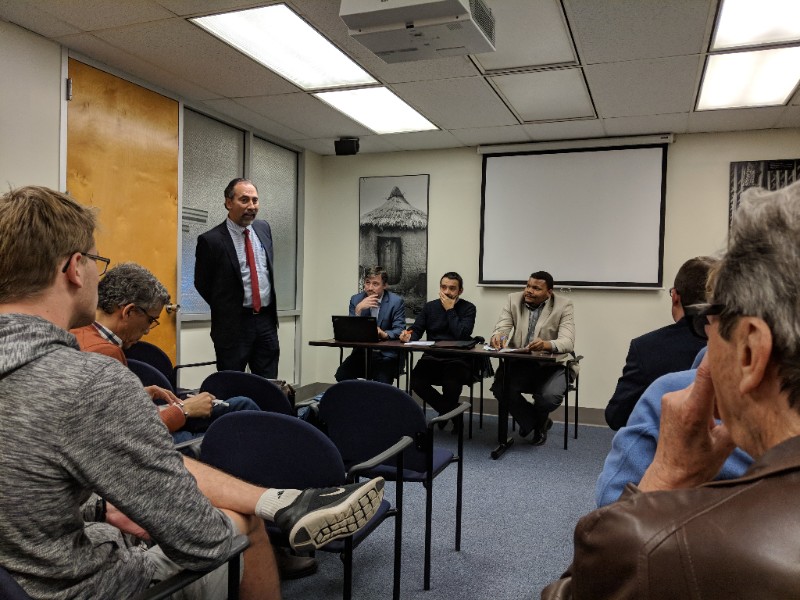Jean-Hervé Jezequel and Vincent Foucher (International Crisis Group) presented on “Jihadi Movements and Security in the Sahel” in a joint lecture through the Sahel Research Group and Center for African Studies. Political Science graduate student Ibrahim Yahaya Ibrahim moderated the discussion.
Vincent Foucher presented “Current Dynamics and the Future of Boko Haram,” which he informally renamed, “Going Rural: A Tale of Two Jihads.” His presentation detailed the community and regional responses to Boko Haram, and analyzed how these responses have produced evolutions of Boko Haram’s political economy. His research was based on 2 years of fieldwork in Nigeria. Dr. Foucher described how two factions of Boko Haram evolved and developed unique political economies. The first faction maintained a raider state, where people, resources, and cattle were taken from local communities. The second faction formed international networks and relied on planned targeted attacks, avoiding massive violence against citizens. Dr. Foucher argued that an understanding of the moral economy of exchange in Boko Haram is necessary to understand political economies.

Jean-Hervé Jezequel presented on “The Changing Jihadi Landscape in Mali and Niger.” The lecture was based on a report from the Tongo-Tongo region on the border of Mali and Niger. Following the Tongo Tongo ambush in 2017, the International Crisis Group conducted research on the history of violence in the region. It was found that in the 1990s, the development of a rebellion in the north facilitated the spread of firearms in the region. However, access to guns and vehicles was difficult, resulting in ethnic power imbalances and frustration in unarmed border communities. In the 2000s, a second wave of rebellion increased gun access. Power relations began to shift and new cultures of violence became common among communities. Bandits, militia, and rebels had access to guns while some groups such as the Fulani were excluded from access. As heavily armed groups began moving into the region in 2012, the balance of power became even more oppressive towards the Fulani who could still not find guns. During this time, Jihadi groups provided access, training, and weapons for marginalized groups. Dr. Jezequel used this rich history to explain how Jihadi groups became embedded in the Tongo-Tongo area through periods of insecurity.